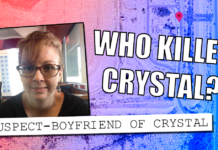
With the recent outbreak of mosquitoes in Maricopa, especially in the Copper Sky area, the Pinal County is providing tips on how to avoid being bitten by the pesky flyers.
According to Chris Reimus, assistant director of Public Health and Environmental Health Services, his department maintains a specific focus on human disease abatement and control.
“We continually conduct mosquito monitoring (trapping) in the area looking for specific mosquito species that are competent vectors for human disease such as West Nile Virus,” Reimus said.
With spring sports in full swing and mosquitoes terrorizing park-goers at Copper Sky, Reimus offered suggestions for avoiding mosquitoes and the diseases they can transmit.
“We recommend that individuals be prudent and protect themselves from mosquito bites,” he said. “The first line of defense would be to avoid outdoor activities during times when mosquitoes are present. If that cannot be avoided, it is highly recommended that you wear pants and long sleeves, and use an appropriate EPA-approved mosquito repellent.”
He added residents can find information on the efficacy and use of mosquito repellent on the CDC website.
The City fogged for mosquitoes recently to mitigate the number of pests in the area of its Copper Sky park. Reimus said it is within the City’s purview to conduct additional mosquito abatement on its property above and beyond the specific disease prevention measures taken by the Pinal County Public Health Services District.
Recreation director Matthew Reiter said the city responded quickly to reports of high mosquito populations but noted fogging does not eliminate all of the biting pests. Fogging is a technique used for killing insects that involves using a fine pesticide spray (aerosol) directed by a blower. The city fogged at Copper Sky on April 8.
“We fogged, but this will just reduce them and not eliminate all of them,” Reiter reiterated. “In a few weeks, the heat should take care of this issue.”
The county conducts ongoing visual reporting about the presence of mosquitoes but does not fog regularly.
“The District’s vector control program only conducts mosquito fogging when our trapping and disease surveillance indicates that fogging would provide a significant public health outcome,” Reimus said. “There are no current plans to fog at this time. Surveillance for mosquitoes associated with human illness is ongoing and will continue throughout the summer mosquito season. We will continue to be vigilant and follow up in the area looking for mosquito breeding sites and working with property owners to prevent mosquito breeding on their properties.”
Reimus offered the following tips on how to keep mosquitoes from breeding in residential areas, saying prevention of breeding is the best method to limit mosquito numbers:
• Eliminate standing water where mosquitoes can lay their eggs.
• Be sure your property is graded to drain appropriately.
• If you have a swimming pool or backyard pond, keep it operational. If you must keep it out of use, make sure you remove the standing water, keep it chlorinated, or run the filter daily
• Change water in flower vases, birdbaths, planters, troughs, and animal watering pans at least twice a week. Be sure to scrub them out when changing water.
• Get rid of junk or debris in your yard that can collect water.
• Repair leaky pipes and faucets. If you have a swimming pool, keep it operational. If you must keep it out of use, make sure you remove the standing water, keep it chlorinated, or run the filter daily. Check for items outside the home that collect water, such as cans, bottles, jars, buckets, old tires, drums and other containers and get rid of them.
Reimus said the best way to deal with mosquito bites is to avoid them. West Nile virus is the leading cause of mosquito-borne disease in the continental United States. It is most commonly spread to people by the bite of an infected mosquito. Cases of WNV occur during mosquito season, which starts in the summer and continues through fall.
There are no vaccines to prevent or medications to treat WNV in people but fortunately, most people infected with WNV do not feel sick. About 1 in 5 infected people develop a fever and other symptoms and about one in 150 develop a serious, sometimes fatal, illness. Reimus recommends if you feel you have symptoms of West Nile Virus, or any other concerns associated with mosquito bites, consult with your personal health care provider.


![3 things to know about the new city budget Vice Mayor Amber Liermann and Councilmember Eric Goettl review parts of the city's 2024 operational budget with Mayor Nancy Smith on April 24, 2024. [Monica D. Spencer]](https://www.inmaricopa.com/wp-content/uploads/2024/04/spencer-042424-preliminary-budget-meeting-web-218x150.jpg)






![MHS G.O.A.T. a ‘rookie sleeper’ in NFL draft Arizona Wildcats wide receiver Jacob Cowing speaks to the press after a practice Aug. 11, 2023. [Bryan Mordt]](https://www.inmaricopa.com/wp-content/uploads/2024/04/cowing-overlay-3-218x150.png)


![Alleged car thief released without charges Phoenix police stop a stolen vehicle on April 20, 2024. [Facebook]](https://www.inmaricopa.com/wp-content/uploads/2024/04/IMG_5040-218x150.jpg)


![3 things to know about the new city budget Vice Mayor Amber Liermann and Councilmember Eric Goettl review parts of the city's 2024 operational budget with Mayor Nancy Smith on April 24, 2024. [Monica D. Spencer]](https://www.inmaricopa.com/wp-content/uploads/2024/04/spencer-042424-preliminary-budget-meeting-web-100x70.jpg)

